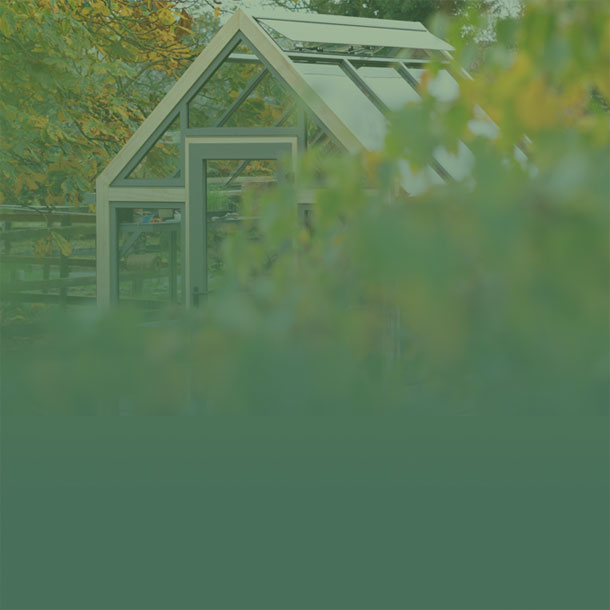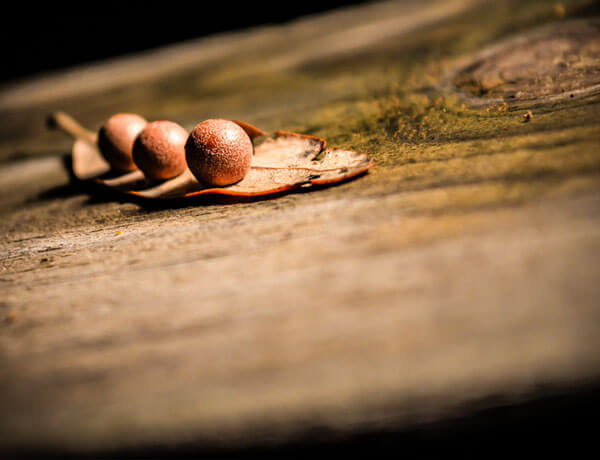-
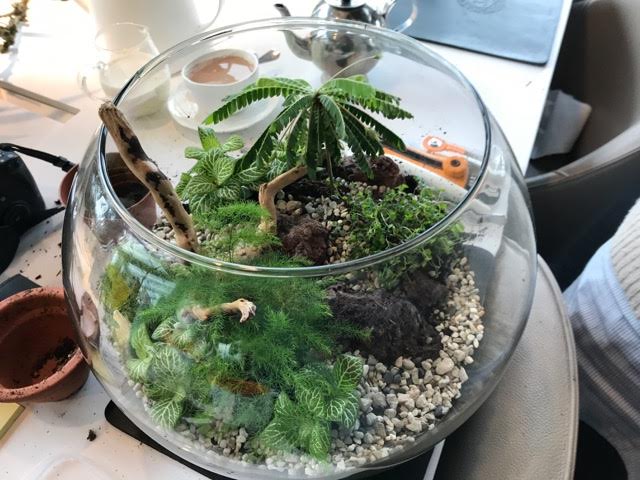
Terrariums are Terrifically Popular – Again
25th September 2017 • Stephanie's Blog • Stephanie Donaldson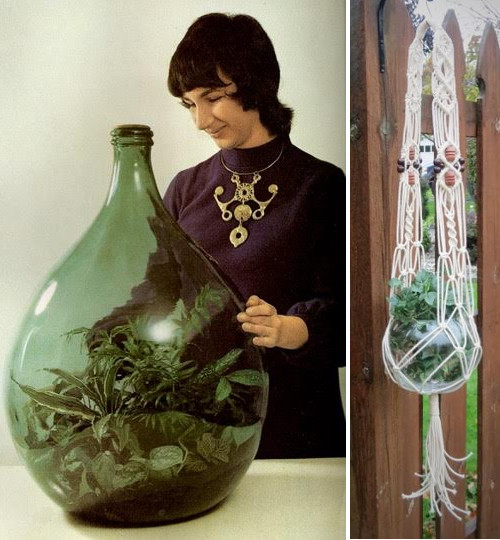
1970s terrariums
I have to admit to being old enough to have planted the odd terrarium or two in the 1970s when they were popular the first time round – sometimes macramé was involved too and I understand that it has also made a comeback. Not in our household though – once in a lifetime is definitely sufficient for a macramé moment! I do however have a rather beautiful terrarium that I had made for me that is currently languishing under a layer of dust in the garage. Now that I’ve discovered that they are being promoted as a way to introduce novices to the skills of gardening, it may be time to get it out, dust it off and replant it. Watch this space……
Fun with Fiskars & James Wong
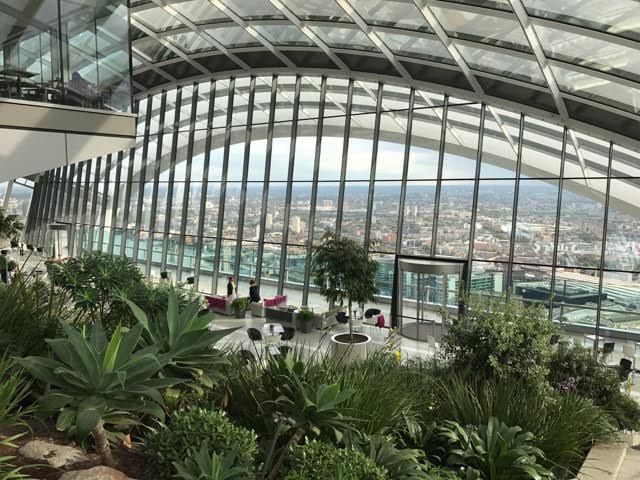 My renewed enthusiasm is the result of a day spent at the Sky Garden in London where I was amongst ten lifestyle and gardening bloggers who spent the day in the company of the team from Fiskars and the ever-entertaining, enthusiastic and informative botanist, James Wong #botanygeek. And, we each got to plant a terrarium to take home with us.
My renewed enthusiasm is the result of a day spent at the Sky Garden in London where I was amongst ten lifestyle and gardening bloggers who spent the day in the company of the team from Fiskars and the ever-entertaining, enthusiastic and informative botanist, James Wong #botanygeek. And, we each got to plant a terrarium to take home with us.

The Science Bit
We were a mixed group – experienced gardeners, dabblers and complete novices – but all of us, James explained, are biologically adapted to be botanists. Apparently human eyes can see more shades of green than any other colour. We may think of our ancestors as being hunter gatherers, but the reality is that there was far more gathering than hunting and the diet was predominantly plant-based. The ability to distinguish between red and green allowed us to develop the ability to identify plants and tell them apart and gather ripe fruit and seeds. And according to evolutionary biologists, our attraction to flowers increases the likelihood that we will remember their location. The more excited we are by a flower, the better our memory will be and the more likely it is that we will be able to return to the same location in a few weeks time and gather the fruit. So, the reason we like flowers is not because they are objectively beautiful, but because our bodies have been designed to get excited by them. In other words we are all gardeners – it’s in our genes.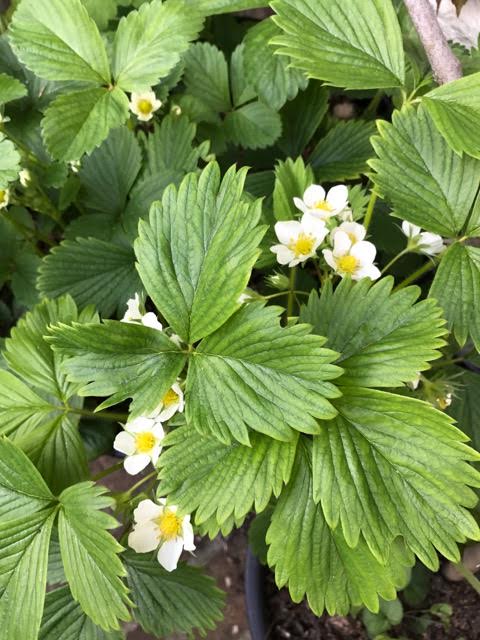
We are programmed to be attracted to flowers as it helps us remember their location and return later for the fruit
Prospect & Refuge
We are, James explained, biologically adapted to live on forest margins and we are permanently trying to recreate a habitat where we have ‘prospect and refuge’ in our gardens. Prospect, in evolutionary terms, is open landscape where we can find food, and refuge is where we can hide from predators, which is why gardens that contain these elements are pleasing to the eye. Our trees and shrubs represent the forest margin – our lawns (or decks) the open landscape.
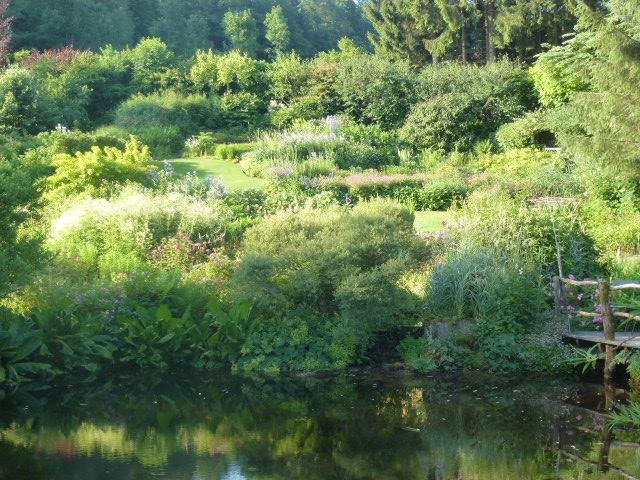
The best gardens combine both prospect and refuge
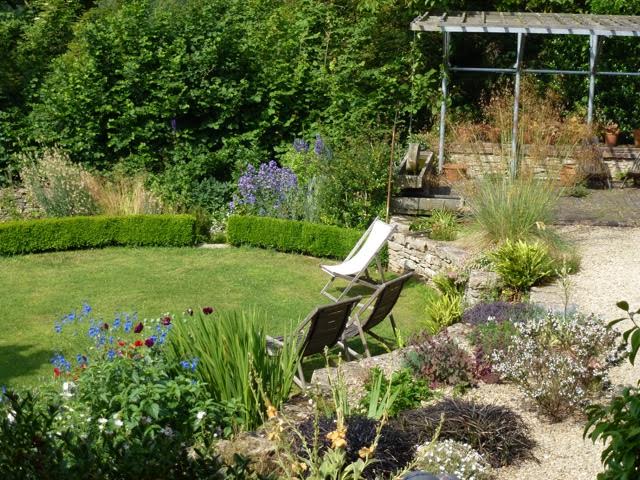
The Benefits of Gardening
Gardening has multiple benefits and helps us match our environment to our basic biology. Not only do plants look good and give us something to look forward to and take care of, they also get us moving. Session by session gardening burns more calories than the gym and is easier – and not just because the session is longer. Low intensity exercise for a longer period of time burns more calories, you don’t have to pay for gym membership and you get free tomatoes! The exercise doesn’t seem as difficult because you are in the fresh air, amongst things that are inspiring and pleasing and making decisions, rather than looking at the flashing lights of a treadmill. It combines free psychotherapy, exercise, fresh air – and makes your surroundings more beautiful. What’s not to like?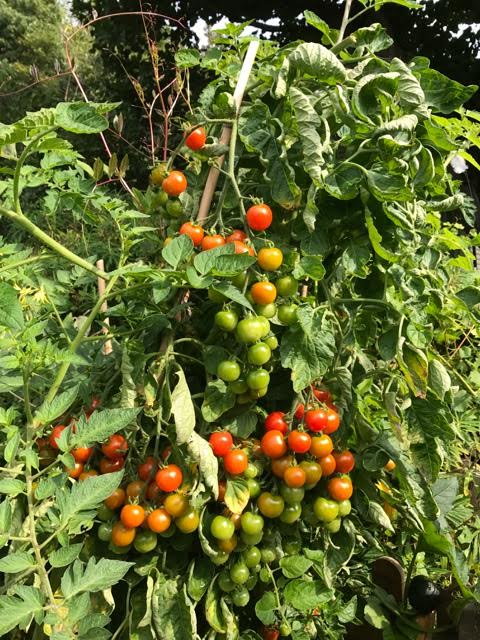
You don’t get free tomatoes by exercising in a gym!
No Mistakes, Just Experiments
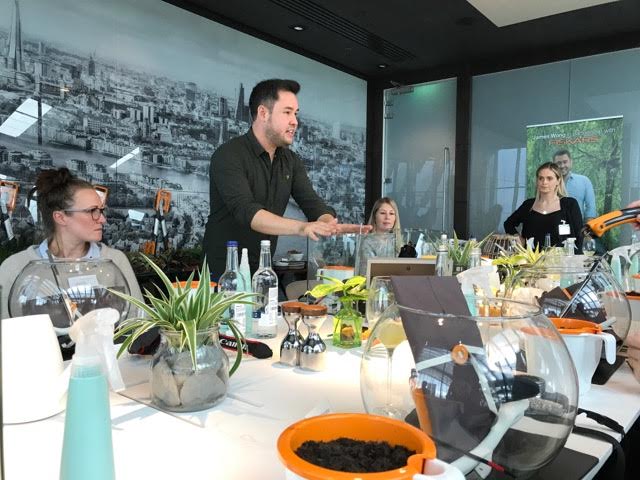
James believes gardening is not about following rules. “I always say there are no mistakes, there are only experiments. People kill a plant and then give up. I tell them ‘You don’t know how many plants I have killed – you’ve got to kill a few plants on the way’. Plants are designed to grow, they want to grow and they will do anything to grow if you give them the basic minimum. Plant an apple tree, stick it in a hole, put some water on it twice a month in summer and after the first year you will probably never have to do it again. Yes, there are things you can do to make the flowers bigger, or make them flower at the right time, but fundamentally plants take care of the vast majority of things for themselves.”
The Terrarium Task – Part 1
With James’s words ringing in our ears, we were set loose on our terrariums – some goldfish bowl shape, some square – and fortunately none with narrow necks, or we might still be struggling to put our plants in place, even with the help of the nifty small tools and giant tweezers supplied by Fiskars.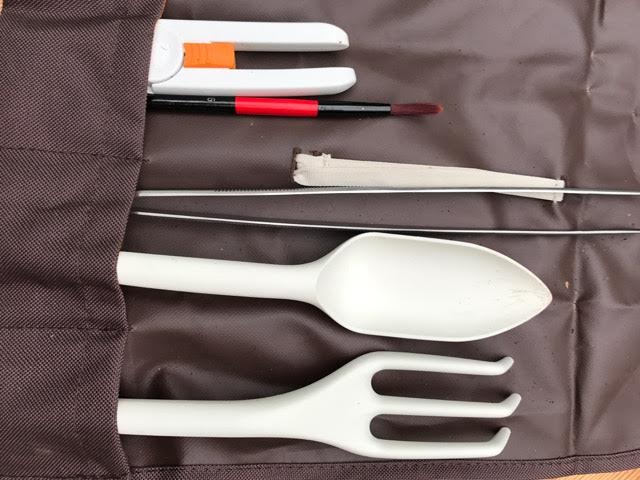
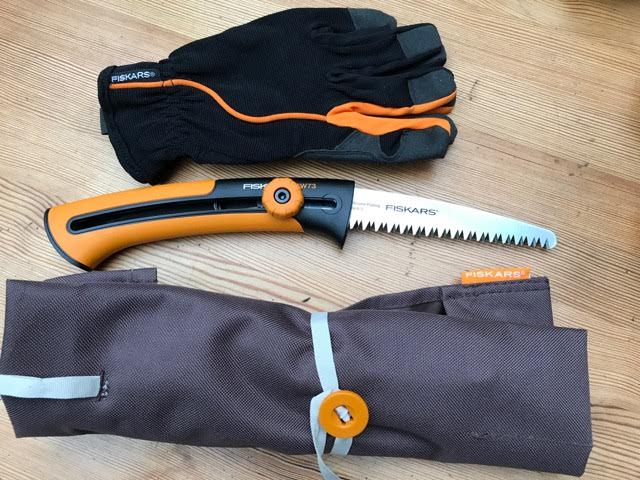
Step 1 – Cover the base with a 3cm layer of clay granules to improve drainage
Step 2 – Add a good layer of compost, at least 5cm deep
Step 3 – Create height and interest in the miniature landscape with rocks and branches
Step 4 – Add plants of contrasting heights, shapes and colours, but aim to leave a third of the soil unplanted
Step 5 – Cover the remaining soil with gravel, moss or creeping plants – this will allow you to look through the planting at miniature views
Step 6 – Water moderately
Step 7 – Mist the planting with a spray bottle
Step 8 – Stand the terrarium in good light but not in direct sunlight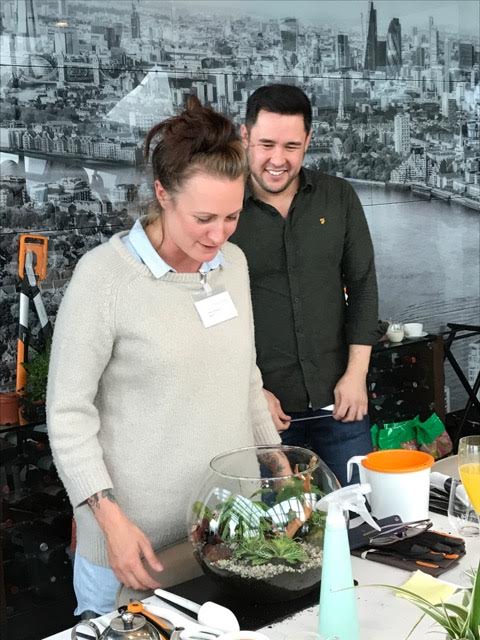
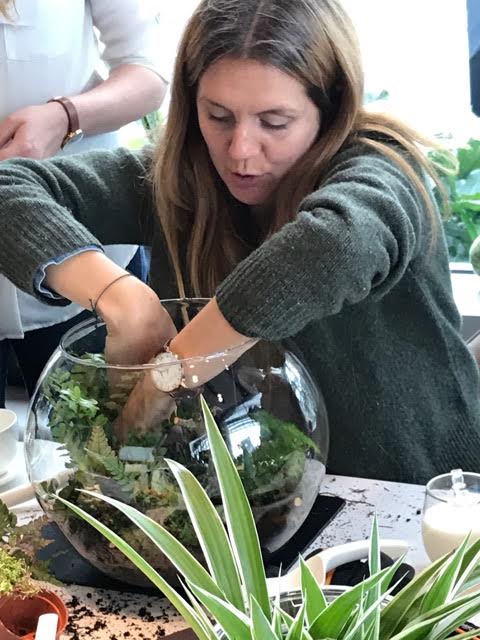
The Terrarium Task – Part 2!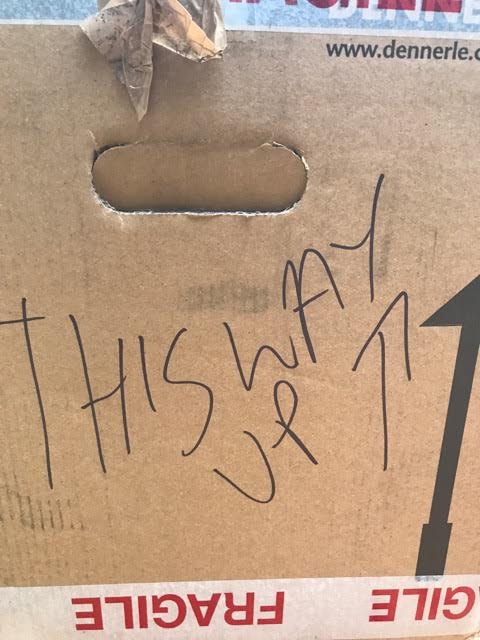
Thanks to a careless courier, I got to have a second go at assembling my terrarium. I was not going home for a couple of days, so the Fiskars Team offered to get it delivered. When it arrived, the couriers had ignored the ‘this way up’ instructions written all over the box and although the terrarium itself survived, it contained a messy jumble of compost, plants and moss.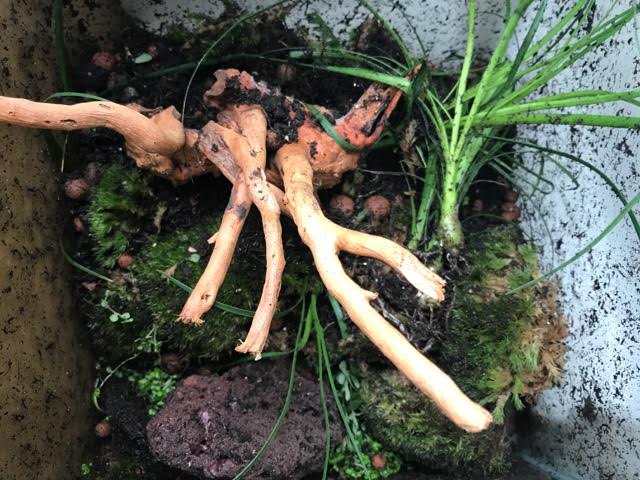
Initially I thought all was lost, but I gradually extracted all the plants, moved them to recover in a washing-up bowl while I cleaned the terrarium, reinstalled the compost and brushed off the moss with a paintbrush.
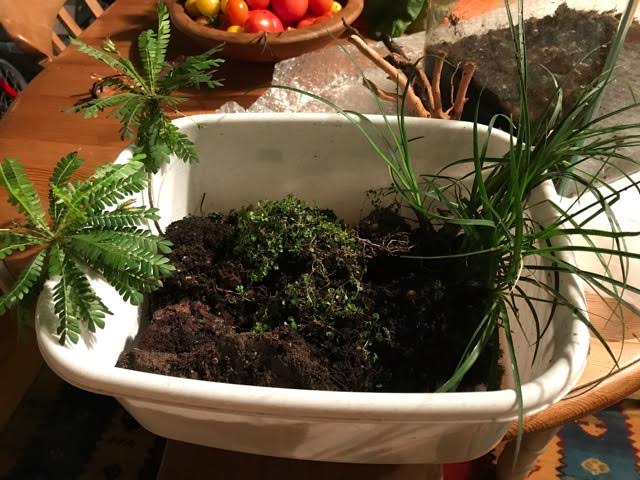
Amazingly, I lost none of the plants and I have managed to recreate my original planting. Although an open-topped terrarium will establish its own microclimate quite quickly and only need regular misting and a light fortnightly water, I have given my terrarium a temporary cling-film cover while my plants recover from their traumatic experience and get their roots down into the compost.
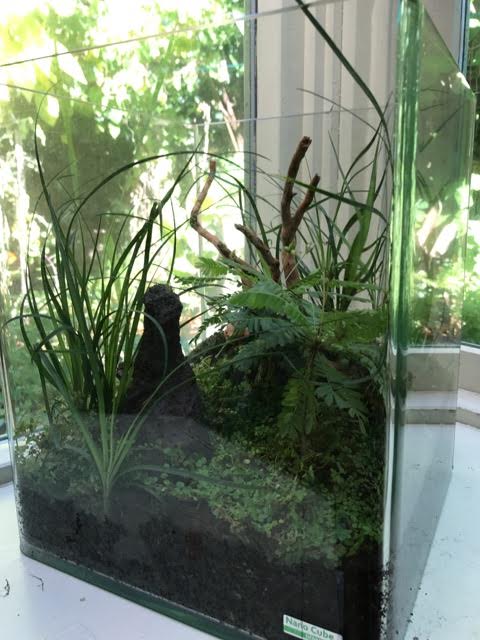
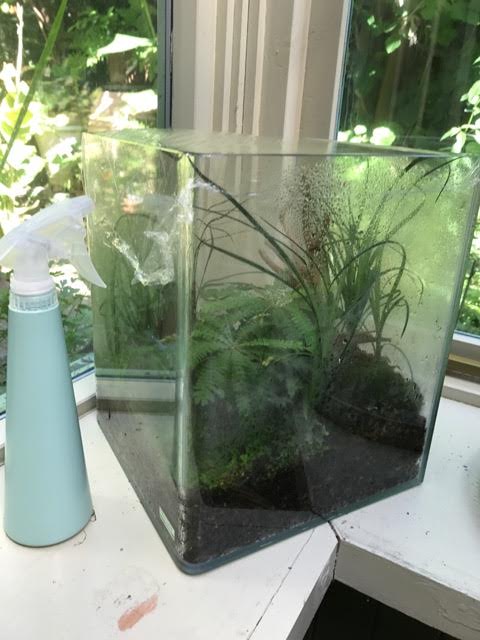
The clingfilm cover is temporary
SPONSORED POST

